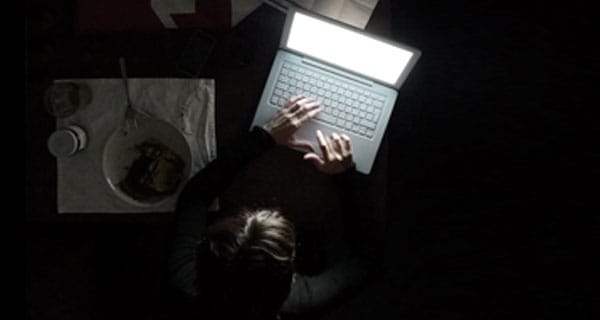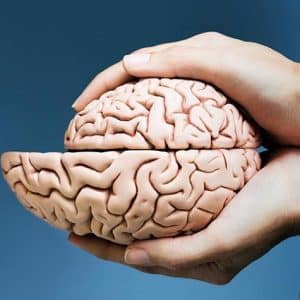إذا كنت شخص ليلي إليك هذا المقال

إذا كنت شخص ليلي إليك هذا المقال
إذا كنت شخص ليلي إليك هذا المقال
يعاني الكثير من الأشخاص من جينات وراثية تدفعهم إلى السهر لوقت متأخر، ولكن بحسب ما ورد في تقرير نشرته صحيفة “نيويورك تايمز” New York Times يمكن أن يساعد اتباع روتين صباحي جديد على تغيير ساعة النوم، بما يؤدي إلى سهولة الاستيقاظ مبكرًا والذهاب إلى العمل في نشاط وحيوية صباحًا.
وبحسب التقرير، الذي أعده أناهاد أوكونور، وهو مراسل متخصص في مجالات الصحة والعلوم والتغذية، وهو أيضا مؤلف الكتب الأكثر مبيعًا عن صحة المستهلك مثل “لا تستحم أبدًا في عاصفة رعدية” و”الأشياء العشرة التي تحتاج إلى تناولها”، فإن نتائج دراسة، أجريت تحت رعاية الحكومة الفيدرالية، أكدت أنه أحيانًا يكون من الصعب الحصول على نوم جيد، إذ تشير الاحصائيات إلى أن أكثر من ثلث البالغين لا يحصلون بشكل روتيني على قسط صحي من النوم، والذي يُعرف بحد أدنى سبع ساعات في الليلة.
أما الخبر السار فهو أنه إذا كان الشخص لديه نزعات السهر حتى ساعات متأخرة في الليل ويعاني من قلة جودة النوم، فإن هناك خطوات يمكنه اتخاذها ليصبح شخصًا صباحيًا أكثر.
إيقاع بيولوجي شخصي
وأفادت نتائج دراسات عملية أن أول ما يجب مراعاته هو أن وقت النوم يتأثر إلى حد ما بالجينات، وأن كل شخص لديه إيقاع بيولوجي شخصي أو نمط زمني، يحدد وقته الأمثل للنوم والاستيقاظ. وأشارت الدراسات إلى أن هناك العديد من الجينات التي تدفع البعض منا إلى الاستيقاظ مبكرًا، في حين يكون البعض أشبه بما يمكن وصفه بـ”البومة الليلية”، ويقع البعض الآخر في مكان ما بينهما.
قامت إحدى الدراسات المنشورة في دورية Nature Communications، على سبيل المثال، بتحليل عادات النوم لما يقرب من 700 ألف شخص وحددت عددًا كبيرًا من الجينات التي تلعب دورًا في تحديد ما إذا كان الشخص صباحيًا أم لا. وتبين أنه، في المتوسط، يميل الأشخاص الذين لديهم أكبر عدد من المتغيرات الجينية إلى النوم والاستيقاظ قبل نصف ساعة تقريبًا من الأشخاص الذين يحملون عددا أقل من المتغيرات الجينية.
قالت دكتورة إيلين روزين، طبيبة متخصصة في طب النوم وأستاذة الطب في كلية بيرلمان للطب في “جامعة بنسلفانيا”، إن جسم الإنسان مجهز فطريًا بدورات يومية على مدار 24 ساعة تحكم وقت الاستيقاظ والنوم. “لكن الخبر السار هو أنه يمكن إعطاء الساعات البيولوجية للأجسام بعض الإشارات التي تؤثر عليها قليلاً”.
عوامل التشتيت
لا يمكن الجزم بأن الشخص الذي يتمتع بعدد أقل من المتغيرات الجينية ويميل إلى السهر حتى منتصف الليل يجب أن يبقى على نفس الحال للأبد والعكس بالعكس. إذ أنه من الممكن أن يظل الشخص مستيقظًا بعد موعد نومه الأمثل بسبب عوامل التشتيت، على سبيل المثال ينام الكثيرون بشكل طبيعي في حوالي الساعة 10 مساءً، ولكن ينتهي بهم الأمر بالبقاء حتى منتصف الليل للعمل أو تصفح الإنترنت أو الاستمتاع بمشاهدة إحدى منصات الأفلام والمسلسلات، مما يجعل من الصعب عليهم الاستيقاظ في الصباح الباكر بنشاط وحيوية. ولكن يمكن تغيير هذا الحال من خلال التركيز على تعديل الروتين الصباحي، من خلال عدد من الخطوات:
• تحديد الوقت الذي يريد الشخص أن يستيقظ فيه.
• النهوض من السرير في ذلك الوقت بالضبط كل يوم، بغض النظر عن مدى الشعور بالتعب، والحصول على بعض ضوء الشمس.
• ضوء الشمس سيخبر العقل أن الوقت قد حان للاستيقاظ.
وتوصلت الدراسات إلى أن ضوء الصباح يمكن أن يعزز الإيقاع اليومي، مما يساعد الجسم على التكيف مع الجدول الزمني السابق. عندما يعتاد الجسم على البدء في اليوم السابق، سيبدأ الشخص في النوم مبكرًا في المساء بشكل طبيعي. من الناحية المثالية، يجب أن يخرج الشخص في الصباح ويمارس الرياضة أو بعض الأنشطة الأخرى التي تجعله يقظًا.
قالت دكتورة روزين: إن “المشي السريع بالخارج في الصباح طريقة جيدة جدًا لبدء إخبار الساعة البيولوجية الداخلية أن الوقت قد حان” لبدء النهار بنشاط وحيوية.
مصباح علاجي
إذا كان الموعد المستهدف للاستيقاظ قبل شروق الشمس أو لا يمكن الخروج بسبب أحوال طقس غير مناسبة تمامًا، فربما يمكن أن يكون الحل البديل هو تجربة العلاج بالضوء الساطع، والذي يتضمن تشغيل مصباح خاص لمدة 30 دقيقة تقريبًا كل صباح أثناء الاستعداد للتعود على بدء اليوم مبكرًا قبل شروق الشمس. في هذا السيناريو، لن يؤدي مصباح الطاولة العادي أو المصباح العلوي الغرض، وإنما يتطلب الأمر استخدام مصباح العلاج بالضوء لأنه مصمم لمحاكاة الضوء الخارجي.
الشمس نهارًا وأضواء خافتة ليلًا
في حين أن التعرض لأشعة الشمس في الصباح أمر بالغ الأهمية، يجب أن يحاول المرء الحصول على الكثير من ضوء الشمس أثناء النهار أيضًا، لأن هذا سيساعد أيضًا على تغيير ساعته في الاتجاه الصحيح. ثم يجب أن يحاول، في المساء، تقليل تعرضه للضوء الاصطناعي. ولا بأس من استخدام الأضواء الخافتة والمصابيح وأضواء القراءة، لكن يجب محاولة تجنب التعرض للأجهزة التي تصدر ضوءًا أزرق، بما يشمل أجهزة الكمبيوتر ومصابيح الفلورسنت وشاشات التلفزيون والهواتف الذكية، في غضون ساعتين إلى ثلاث ساعات من الوقت الذي يرغب الشخص في الخلود إلى النوم فيه.
وأظهرت الدراسات أن التعرض للضوء الأزرق في الليل يمكن أن يعطل النوم ويثبط الميلاتونين، وهو الهرمون الذي يساعد على تنظيم النوم.
واكتشف الباحثون أن الضوء الأزرق يمكن أن يؤثر على الساعة البيولوجية، مما يجعل من الصعب على المرء أن يصبح شخصًا نشيطًا في الصباح المبكر.
جرعة ميلاتونين
قالت دكتورة صبرا أبوت، الأستاذة المساعدة في طب الأعصاب في طب النوم في كلية الطب بـ”جامعة نورث ويسترن” في شيكاغو، إنه يمكن الحصول على بعض المساعدة من خلال تناول جرعة منخفضة للغاية من الميلاتونين، والتي يمكن العثور عليها في معظم الصيدليات. وتوصي دكتورة أبوت بأخذ ما لا يزيد عن نصف ملليغرام قبل النوم بساعة واحدة.
من المهم الحفاظ على الجرعة منخفضة. أضافت دكتورة أبوت أن تناول جرعة الميلاتونين تعد محاولة “لتقديم إشارة بسيطة بأن بداية الليل قد حلت، محذرة من زيادة الجرعة لأن الميلاتونين يمكن أن يؤثر سلبيًا على الساعة البيولوجية لاحقًا ويزيد المشكلة سوءًا.”
أيام العطلات
نصحت دكتورة روزين بضرورة الالتزام والمواظبة على تنفيذ الخطوات والحرص على النوم في أوقات مبكرة من المساء، بما يشمل أيام الإجازات وعطلات نهاية الأسبوع، لأنه إذا كانت هناك “حفلة في عطلة نهاية الأسبوع وظل الشخص مستيقظًا لوقت متأخر أو بدأ في مشاهدة التلفزيون في وقت متأخر من الليل، فسيتراجع عن كل ما فعله للتو، وسيُتعين عليه البدء من جديد.”
متلازمة طور النوم المتأخر
يعاني بعض الأشخاص من حالة تُعرف باسم “متلازمة طور النوم المتأخر”، وهم الذين يميلون إلى عدم النوم إلا بعد منتصف الليل، ويمكنهم النوم بسهولة خلال الصباح. إن هذه الحالة هي أكثر شيوعًا بين الشباب، حيث تصيب ما يقرب من 7 إلى 16% من المراهقين والشباب.
ويمكن أن تساعد التغييرات السلوكية المذكورة أعلاه إذا كان الشخص يعتقد أنه مصاب بهذا الاضطراب. ولكن إذا اكتشف أنه لا يزال غير قادر على العمل أو الذهاب إلى المدرسة أو العمل يوميًا، فربما يكون من الجيد المسارعة بمراجعة طبيب متخصص في علاج مشكلات النوم.






